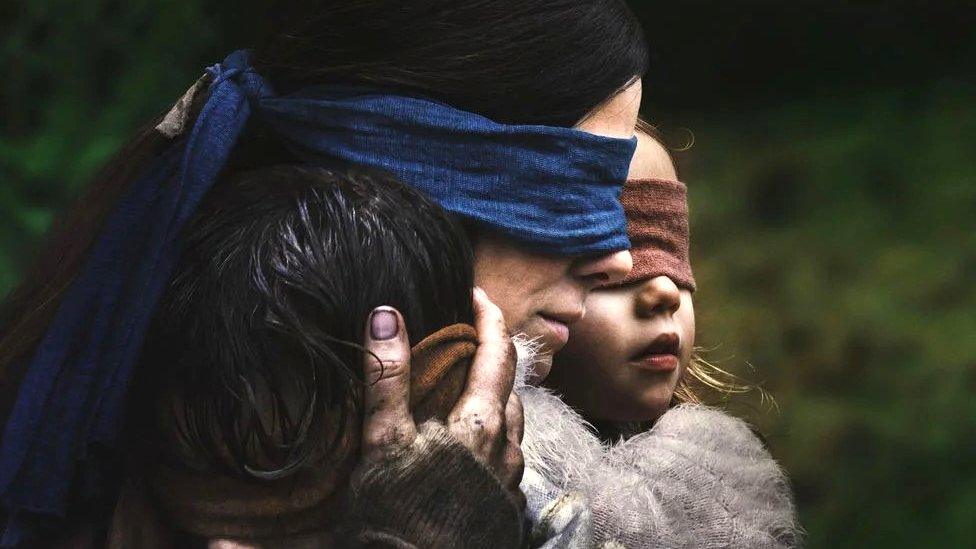Tech Tent: Netflix and the race for eyeballs
- Published

Netflix says Birdbox has been a hit
It is the company that is changing the way we watch, and it is sending tremors through the TV and film industries.
But on this week's Tech Tent podcast, we ask how long Netflix can keep up the extraordinary spending spree that has kept it ahead of its rivals.

On Thursday, Netflix released full-year results showing it had more than 139 million subscribers, with nearly 9 million joining in the last three months.
After years of keeping viewing figures close to its chest, it revealed that its latest big hit - the suspense movie Birdbox - had been watched by 80 million households in the first four weeks after its release.
Vindication then for the bold strategy of spending huge sums on original content. Until 2013, Netflix offered just bought-in films and TV programmes, many of which were available elsewhere. Then came House of Cards, The Crown, Stranger Things and a host of other dramas, documentaries and comedies.
These Netflix originals now account for most of what its subscribers view, but that success has come after huge expenditure. Analysts reckon a total of $13bn (£10bn) went on programming last year. In its letter to shareholders, the company said it planned to "keep significantly growing our content", which presumably meant spending even more.
This is all financed by massive borrowing. The company will have to pay back something like $32bn over the coming years for all that content and other costs.
Investors haven't worried about this so far, betting that growing the audience is the key in the short term and that will eventually deliver huge profits. The same strategy is followed by Amazon, Facebook and other tech giants.
So the most important number for Netflix is not how many people watch Birdbox but how many new subscribers sign up. This week saw a big price rise in the US, a market which is already nearing saturation. That should improve the financial situation as long as it does not put off new subscribers.
So far, the firm has outpaced rivals such as Amazon Prime Video and HBO. But more services are launching, and may try to undercut Netflix. The race for eyeballs is on and the big beneficiaries will be the actors and programme-makers whose talents will be vital in this battle.
Also on the podcast this week:
Arizona has become the world's leading testing ground for autonomous vehicles after the state's governor signed an order allowing fully self-driving cars. We find out about a trial that's taken full advantage of that freedom to launch a robot grocery delivery service. Nuro's driverless pods speed at up to 25mph through the streets of Scottsdale and when they arrive at their destination, they can be unlocked and the shopping removed by customers who are sent a code
As Zimbabwe's government cuts off its citizens' access to the internet, we talk to Berhan Taye who leads Access Now's #KeepItOn campaign, a global drive to stop internet shutdowns